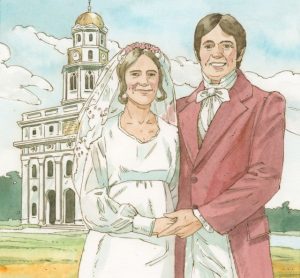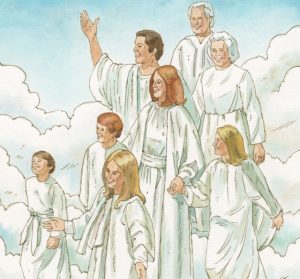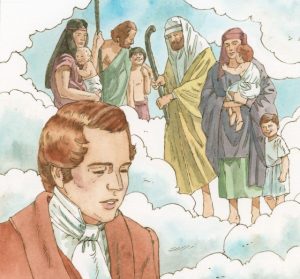Here’s what the D&C Scripture Stories on the Church website has to say about Section 132. I’ve included both the pictures and the associated text below each picture.

Joseph Smith asked the Lord some questions about marriage. Jesus told him that a man and woman should be married by a man who has the priesthood. They should be married in the temple. If they obey God’s commandments, they will be married forever. [D&C 132:1-29]

Righteous people who are married in the temple will live in the celestial kingdom of heaven. Their children who obey God will belong to them, and they will be an eternal family. They will live with God and will become like Him. [D&C 132:1-29]

Jesus also told Joseph about the history of marriage among His people who lived anciently. [D&C 132:34-39]
That’s it. Three quick pictures. Not a word about polygamy. Nothing about the threats to destroy Emma. Really, though, I don’t blame the curriculum staff who put this together. It’s got to be a tough assignment to extract something that’s consistent with the Church’s current image of itself from that section.